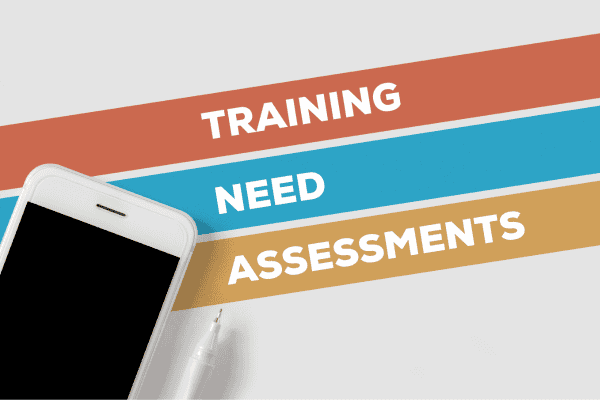In the realm of corporate learning and development, the key to creating impactful training programs lies in understanding the needs of your learners. This fundamental process, known as needs assessment, forms the bedrock upon which successful training initiatives are built. Needs assessments aren’t just a step; they’re the foundation of exceptional training.
Understanding Needs Assessments: Unveiling the Blueprint of Success
Imagine embarking on a journey without a map or compass. The same holds true for training programs crafted without the guidance of a needs assessment. At its core, a needs assessment involves a systematic exploration of what learners truly need to excel. This strategic blueprint is essential to ensure that the training aligns with both the learners’ requirements and the organization’s goals.
Gathering Insights: The Key to Tailored Training

The art of needs assessment involves delving into the depths of your audience’s preferences, learning styles, and skill gaps. Conduct surveys, analyze data, and hold conversations. By doing so, instructional designers gain a deep understanding of the challenges learners face and the knowledge they seek.
Take the example of a software company aiming to enhance its employees’ digital skills. Through targeted surveys and discussions, they uncover that while some employees lack basic software navigation skills, others yearn for advanced coding knowledge. Armed with this information, the company tailors their training programs to cater to distinct proficiency levels, ensuring engagement and meaningful learning for everyone involved.
Precision in Prioritization: Focusing on What Matters
Needs assessments are about more than just understanding the audience; they’re about identifying the crux of what needs to be taught. pinpoint what’s essential. Prioritize skills and knowledge that align with business goals.” This approach ensures that training efforts are directed towards equipping learners with the skills that directly contribute to organizational success.
Consider a retail chain looking to revamp its customer service training. Through a meticulous needs assessment, they ascertain that active listening, conflict resolution, and product knowledge are paramount for enhancing customer experiences. By focusing on these core areas, the training becomes highly relevant and drives tangible improvements in customer satisfaction metrics.
Personalization: The Catalyst for Engagement

In the age of personalization, generic training materials fall short. The magic of needs assessments lies in their ability to guide the creation of customized training experiences. A one-size-fits-all approach rarely works. Address different roles and learning levels. Personalized training acknowledges that employees have diverse roles, backgrounds, and aspirations. By catering to these individual needs, engagement soars.
Imagine a healthcare institution seeking to empower its nursing staff with the latest medical advancements. A needs assessment reveals that while some nurses seek updates on patient care techniques, others want to deepen their understanding of medical equipment operation. By crafting separate modules that address these distinct requirements, the institution ensures that each nurse gains value, resulting in increased enthusiasm for learning.
The Power of Detail: Navigating to Excellence
In the realm of instructional design, details hold immense power. The more nuanced your understanding of your learners, the more effectively you can shape their learning experiences. The specifics uncovered through needs assessments guide the creation of content, activities, and assessments that resonate deeply with learners.
Visualize a financial institution gearing up to educate its staff about compliance regulations. A needs assessment reveals that employees possess varying levels of prior knowledge. Armed with this insight, the institution crafts a multi-tiered training program. Basic modules cater to those starting from scratch, while advanced segments engage seasoned professionals. The result? Enhanced comprehension, higher retention, and compliance adherence across the board.
Embracing Needs Assessments: A Journey to Excellence
In the world of corporate learning and development, the role of needs assessments cannot be overstated. They empower instructional designers to create training programs that truly make a difference. Needs assessments aren’t just a step; they’re the foundation of exceptional training. By understanding your learners, prioritizing effectively, personalizing content, and attending to the minutest details, your training initiatives are set on a trajectory towards excellence.
In conclusion, needs assessments are the compass that guides you through the intricate landscape of instructional design. With each assessment conducted, you’re not just gathering data; you’re acquiring the insights necessary to transform learners into empowered, skilled professionals. Let needs assessments be your guiding light towards training excellence, enabling both learners and organizations to thrive.

